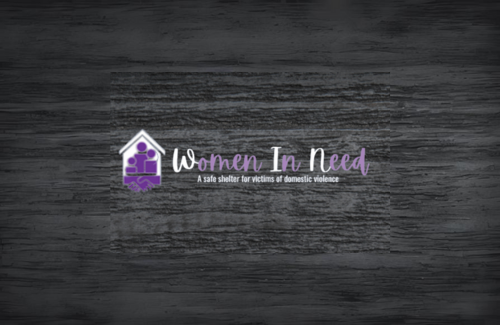Search Results "Teen dating"
Working directly with teens to robustly build healthy relationship skills gives us a unique and positive approach for primary and secondary dating violence prevention with males and females. Developing adolescents’ knowledge about and skills for their romantic lives is an especially effective approach to deescalating conflict, developing a personal sense of responsibility, and staying safe. This webinar will: Review the research on comprehensive relationship education as it relates to teen dating violence; Explore how relationship education positively impacts other outcomes for adolescents, and Learn strategies that participants can use to bring evidence-based relationship skills to their schools and communities. Presenter: Kay Reed, President and Executive Director, The Dibble Institute Resources: HRE for Dating Violence Prevention Among High-Risk Youth NIJ Journal Issue Number 261 Relationship Smarts Plus Sample Lesson STOP SV-A Technical Package to Prevent Sexual Violence Teen Dating Violence as a Public Health Issue
Adolescent dating violence has surfaced as a significant public health issue. In response to this disturbing trend the US Department of Justice contracted with Concept Systems to conduct a study and directly engage teens and young adults to better understand how youth conceptualize teen dating and teen dating violence. The results of their study will be discussed as well as recommendations for next steps for researchers and youth educators. Presenters: Alyssa Goldman M.S., Concept Systems, Ithaca, NY and Jessica Gosa M.S.W., L.M.S.W., Concept Systems, Ithaca, NY Resources: March-2015-Webinar-Resource
We all may know someone who has experienced dating or domestic violence (DV) or intimate personal violence (IPV). Naming the violence is the first step to dealing with it, breaking its pattern, and empowering teens for avoidance. October is National Domestic Violence Awareness month. How can we use healthy relationship education to address domestic violence or intimate personal violence? Join Katherine Hillgren as she: Shares her work using the Love Notes curriculum to address DV and IPV. Shares her work in alternative schools, at a runaway shelter, and with pregnant and parenting teens. Demonstrates how this education becomes a community project. Presenter: Katherine Hillgreen, MA, LPC,Empowering Families Coordinator, Ozarks Family Resource Center, Missouri Resources: October 2014 Webinar PPT
“But you know I’m just like you, right?” Exploring Adolescent Dating and Disability Join Dr. Heidi Rueda as she discusses her research on adolescent dating and disability. She will explore young people with disabilities’ romantic and sexual experiences highlighting the unique challenges and assets across the stages of relationships (initiation, sustainment, and termination). She will also cover dating and sexual violence prevention along with pregnancy and parenting considerations. She will highlight how, through advocacy, parents and educators can help young people with various types of disabilities obtain sexual citizenship via comprehensive sexual health education plus tailored dating and sexual health resources. The qualitative data for this webinar came from interviews with social workers who served children and adolescents with disabilities, as well as from interviews with young adults with disabilities and with parents of youth with disabilities. Objectives: Participants will be able to: Describe the intimacy desires of youth with…
The prevention educators of Women In Need, Inc., based in north Texas, will share with participants their experiences in developing curriculum to help high school students choose healthy relationships. They will also share with participants their experiences in developing curriculum to help middle school students develop healthy social and emotional skills. In addition, participants will hear how Women In Need’s prevention educators utilize Love Notes 3.0 to serve at-risk teens. Finally, participants will be reminded of the significance of ongoing curriculum evaluation and modification. Participants will be encouraged to adopt a process of curriculum evaluation and modification that works best for their organizations and the students they serve. Objectives: Webinar participants will understand: The history, mission, and services of Women In Need, Inc. (WIN). WIN’s Teen Dating Violence Prevention curriculum for high school students designed to help them choose healthy relationships. WIN’s prevention education curriculum for middle school students designed to…
Goal: Prevent Domestic Violence
Funding: Private Donations/Grants
Setting: Middle and High School Classrooms
Curriculum: Love Notes 3.0
September 9, 2020 @ 1:00 pm Pacific Developmentally, one of the ways adolescents explore who they are is through romantic relationships. How adolescents approach these relationships is influenced by the relationships modeled around them. While some youth may have witnessed and learned about positive couple interactions from good models, many may have witnessed only poor models of couple relationships. Educational programs on healthy relationships can help youth develop skills to make smart relationship choices and avoid risky behaviors. Since 2008, the University of Georgia along with Family and Consumer Sciences and 4-H Extension agents, in partnership with schools and community agencies across 76 counties, have delivered Relationship Smarts PLUS to nearly 15,000 youth. Overall, participating youth have reported increases in knowledge, confidence that they can use the skills learned, likeliness to use these skills, and positive feelings about themselves. Join Dr. Ted Futris and Cindy Sheram as they share their…
Dr. Temple will discuss sexting (a combination of the words sex and texting), the practice of electronically sending sexually explicit images or messages from one person to another. Sexting has received an abundance of attention in the popular press. Much of this attention has been limited to (1) legal cases in which teens who create, send, receive, store, and/or disseminate nude pictures of themselves or another teen face criminal charges including child pornography, and (2) cases in which teens are harassed and bullied as a result of the nude picture being distributed beyond the intended audience. Although media reports often cite various examples of sexting leading to bullying, cyber-bullying, and even suicide, we understand very little about the public health importance of sexting. Using data from his ongoing longitudinal study of adolescent health, as well as a recent meta-analysis, Dr. Temple will examine the prevalence of sexting behaviors as well…
In October 2016, Dr. Michelle Toews and her colleagues at Kansas State University received a grant to develop, implement, and evaluate the #RELATIONSHIPGOALS program, a sexual risk avoidance education intervention with seventh- and ninth-grade students from a local school district. The goal of program is to empower youth to make healthy decisions by teaching them the benefits associated with self-regulation, healthy relationships and goal setting, while also teaching them how to resist sexual coercion, dating violence and other risky behaviors. The curriculum used in the intervention is Relationship Smarts PLUS, Sexual Risk Avoidance Adaptation. Preliminary results suggest the program is reaching its goal. Specifically, students report that they love the program and share that one of the most important things they learn is how to identify healthy and unhealthy relationships. They also say the program teaches them skills they need to develop healthy relationships, particularly effective communication skills, which they…
Young love lives can be exhilarating, confusing, or even scary. Ten important concepts will help create a fantastic romance. Helpful concepts include; Getting to know what matters most to you. Exercising your power to choose. How pretending can make love messy. Dating someone who doesn’t need a make over. And many more! Specific attention will be given to the skills for bringing these conversations into your work with teens. Presenter: Elsbeth Martindale, PsyD, Author of Things to Know Before You Say, Go! Resources: 21 Early Warning Signs February-2015-Webinar-Resource-List Pretend-cycle Self-Encouragement-Handout Truth-cycle
Teens often move too quickly in romance. Breaking romantic development down into 4 specific stages can help teens see the path that leads to healthy partnership choices and understand concerns regarding the choice to “Hook-Up”. Each step in this progression has it’s own important tasks. Moving too quickly through stages or skipping stages puts the individual at risk and at a disadvantage. Making these stages, and the accompanying tasks, clear can help young adults slow down, stay curious, identify obstacles, and avoid potential emotional, mental, and physical injury Guest Presenter: Elsbeth Martindale, PsyD, Creator of the card set and activity book: “Things to Know Before You Say Go.”
Goal: Prevention of Substance Use Disorder (SUD) and STD/HIV infections in teens and young adults.
Funding: SAMHSA Prevention Navigator
Setting: High Schools
Curriculum: Love Notes
Healthy romantic relationships during adolescence are important. They help shape behaviors during adolescence, plus they provide the basis for healthy relationships during adulthood. This webinar will provide participants with a better understanding of the multiple dimensions of adolescent relationships and how these relationships influence other areas of teen and young adult lives. This webinar also identifies commonalities among healthy relationship education programs and other youth interventions, including teen pregnancy prevention, teen dating violence, social skills, and college and career readiness programs. At the end of this webinar, participants will learn: Why healthy adolescent romantic relationships matter Healthy and unhealthy aspects of adolescent romantic relationships Linkages between relationship education programs and other youth needs and interventions Presenter: Mindy Scott, Ph.D., Deputy Program Area Director and Senior Research Scientist with Child Trends Resources: June 2015 Webinar PPT






